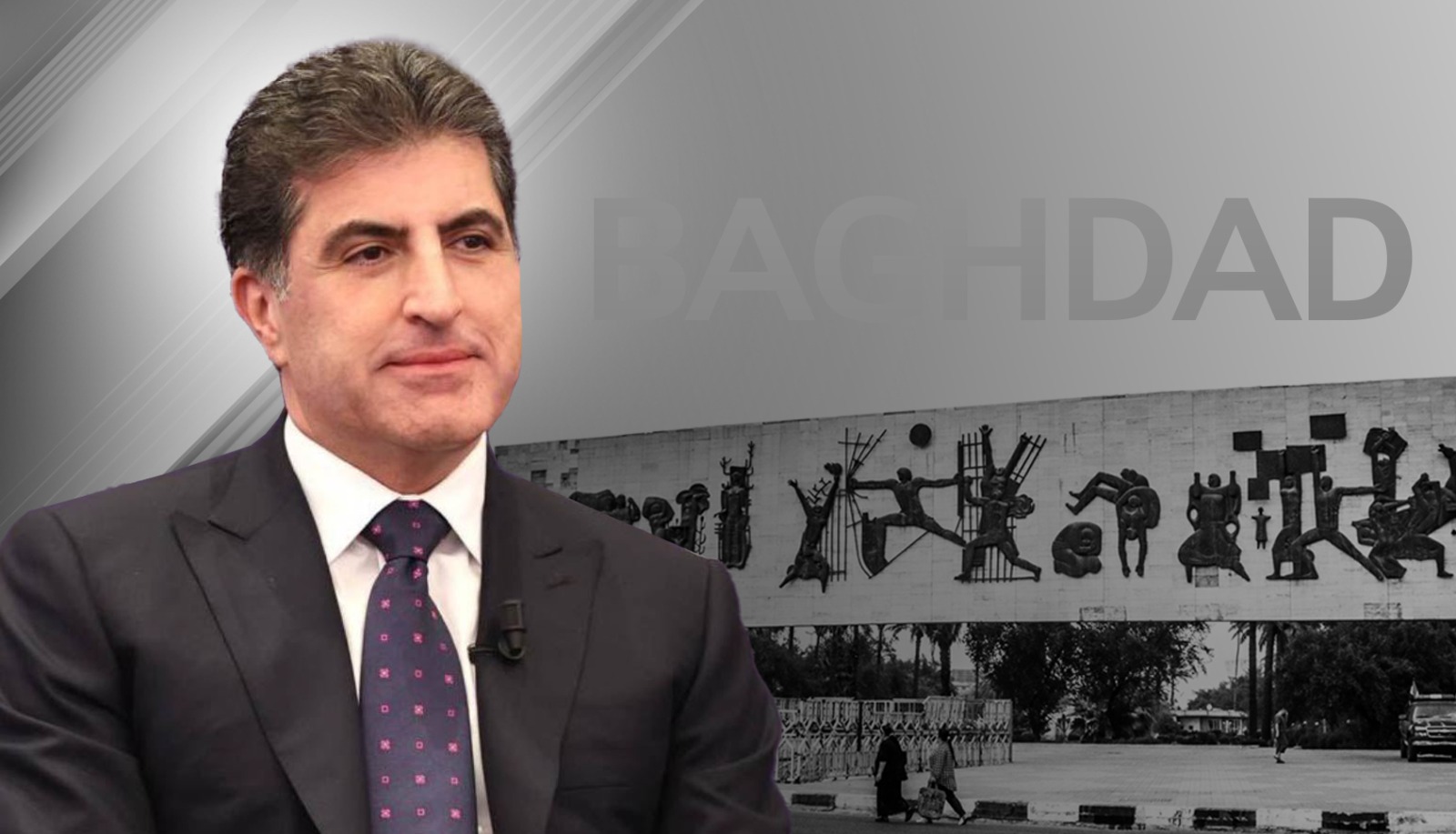The recent visit of the Kurdistan President to Baghdad occurred at a highly delicate juncture. Escalating tensions in Iraq and the Kurdistan Region, intensified by the geopolitical conflicts in the region. Media attention is primarily directed toward the actions of militia groups and the pivotal question of whether the U.S.-led coalition will continue its presence. Compounding this, there is a growing demand from certain Iraqi Shiite groups seeking dominance in the country's internal politics, notably amplified after the 2023 provincial elections.
The looming prospect of internal clashes among armed groups in both Baghdad and southern Iraq, coupled with the current tensions between Halbousi and Maliki regarding the post of the speaker of the parliament, has taken center stage in daily news. Additionally, there is a strong likelihood of behind-the-scenes tension emerging on the administrative posts of Anbar and Baghdad. Meanwhile, the Kurdistan Region grapples with a multifaceted political, economic, and security crisis. Thus, keeping channels open for dialogue and sustaining negotiations becomes a crucial measure to avert further complications during these challenging times.
The meetings between president of the Kurdistan Region and each Shiite leader, followed by discussions with U.S. Ambassador to Iraq Alina Romanowski, held significant importance. This occurred at a critical juncture when some Shiite lawmakers are actively pursuing both political and legal avenues to withdraw U.S. troops from Iraq. Over the past two decades, the United States has played a crucial role in supporting both Kurds and Shiites, notably in 2003 during the toppling of Saddam's regime and in 2014 when ISIS posed a threat just 24 kilometers away from reaching Iraq, while it holds true that a nation's interests extend beyond historical events, it is equally accurate to acknowledge the pivotal role of the U.S. security umbrella. This umbrella is indispensable for both counterterrorism efforts and the maintenance of domestic and regional balance, crucial not only for Kurds and Shiites but for the entirety of Iraq.
In this context, the Kurdistan Region can potentially serve as a nexus for discovering a middle-ground solution that aligns with the aspirations of the Coordination Framework, the United States, and other involved parties.
Following the visit of the Kurdistan Region's president, a noteworthy development emerged as the Iraqi Council of Ministers opted to allocate a portion of the budget for the Kurdistan Regional Government. While the issue of the budget between Baghdad and the Kurdistan Region may persist, especially amid the ongoing crisis, there exist compelling reasons to explore at least a moderate solution at this juncture.
President Nechirvan Barzani highlighted that the primary factor can be attributed to the concerted efforts between him and the Kurdistan Regional Government, suggesting that their collaborative initiatives have exerted a notable impact. The second reason is linked to the growing tensions between Maliki and Halbousi, these tensions revolve around critical issues, including the renomination of the speaker of parliament and the administrative posts in the provinces of Baghdad and Anbar, simultaneous tensions with both Kurds and Sunnis would not be advantageous for Maliki and his affiliated groups.
The third aspect pertains to the broader regional scenario, encompassing political, economic, and security pressures on the Kurds. Groups identifying themselves as the "Islamic resistance" consider the Kurdistan Region an ally of the United States, consequently exerting maximum pressure on the region. In the past month, there has been a notable escalation in American and Israeli attacks targeting leaders of these groups in Lebanon, Syria, and Baghdad, resulting in the demise of at least four key leaders and commanders.
In the Red Sea, coalitions against the Houthis have initiated attacks, posing a significant security and military challenge for the so-called "Resistance Front" on its western front. Simultaneously, a blast occurred in Kerman, located tens of kilometers from Iraq and Afghanistan. Despite ISIS officially claiming responsibility for the incident, Iran holds two distinct views: one implicating Israel and the other suggesting possible facilitation by the Taliban in the attack.
Nevertheless, there is a consensus that the incident carries a political message, aiming to destabilize the country from its eastern borders. Consequently, as the Resistance Front grapples with challenges both in the east and west, its difficulties with the United States in Iraq have escalated. In this sensitive time, the front may lean towards reducing tensions with the Kurds. However, stability in this regard is precarious and subject to shifts in the regional war landscape. These instabilities and tensions are not confined to Iraq alone but are integral to the current global scenario. From Taiwan to the Red Sea, from Gaza to Ukraine, the world is either witnessing war or the looming shadow of it, a situation likely to persist for several more years. Hence, maintaining open channels of dialogue with both opponents and allies is of paramount importance.
Today, the World Economic Forum in Davos, focused on the theme of "Rebuilding Trust," has convened, in its 19th report, identifies over 30 short-term risks for the next two years, with many directly affecting Iraq. These risks span various concerns, including political and social polarization, misrepresentation, war, and climate change.
Davos' primary themes have consistently centered on cooperation and trust-building since its 2021 call titled "The Great Reset." In 2022, the theme was "Working Together, Restoring Trust," and in 2023, it shifted to "Cooperation in a Fragmented World." In the current global stage marked by challenges, trust and cooperation are scarce resources. Iraq, reflecting the diverse dynamics of the world stage, faces its own complex narrative. In this context, the effort to foster cooperation and restore trust is undeniably challenging yet exceedingly important.



